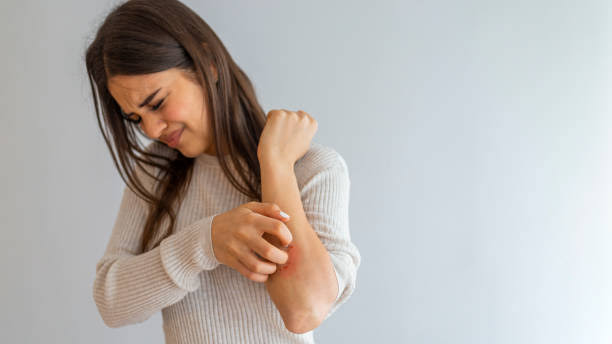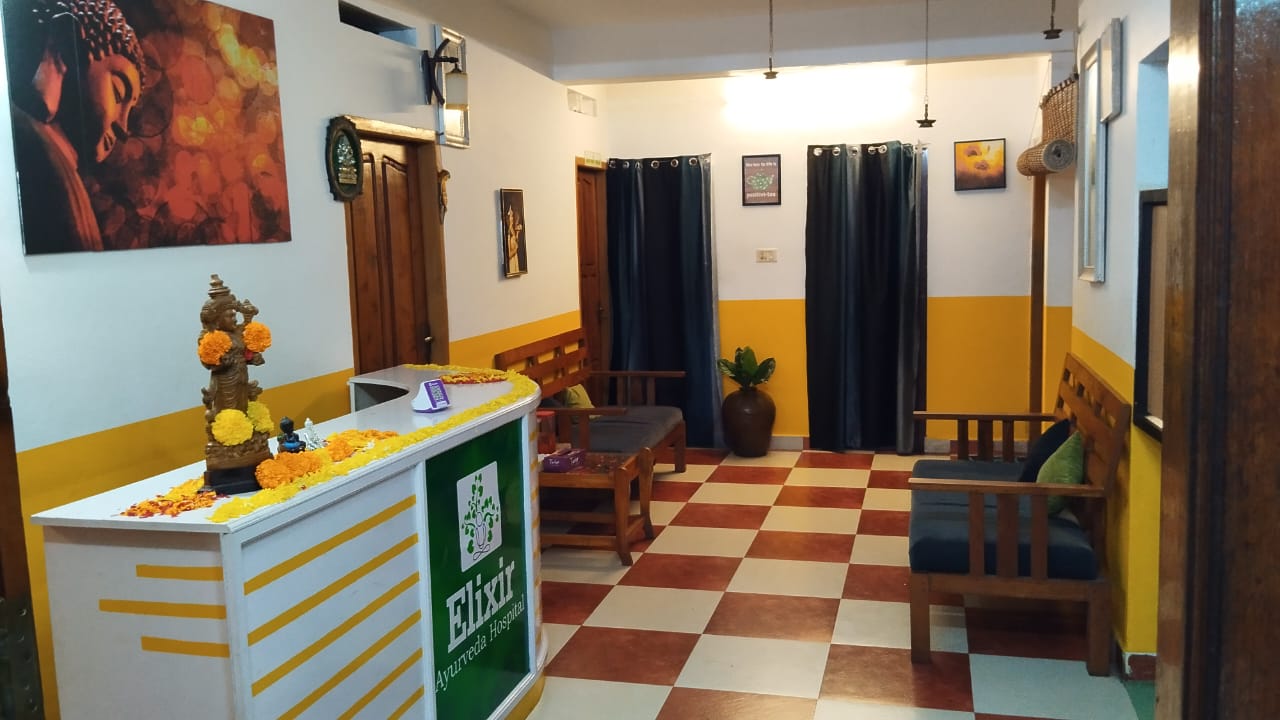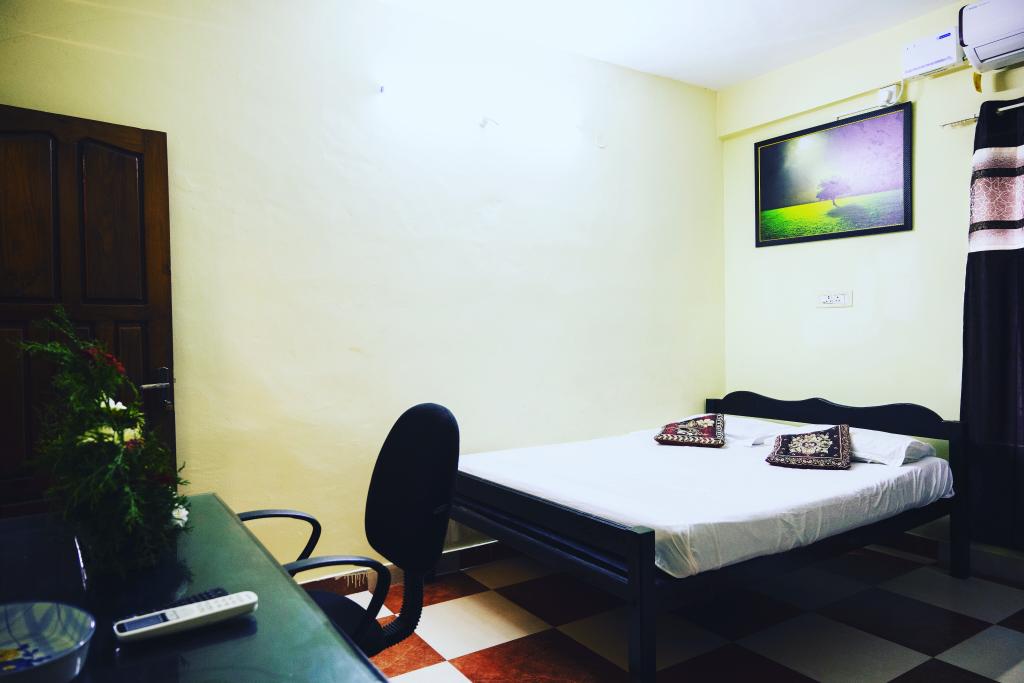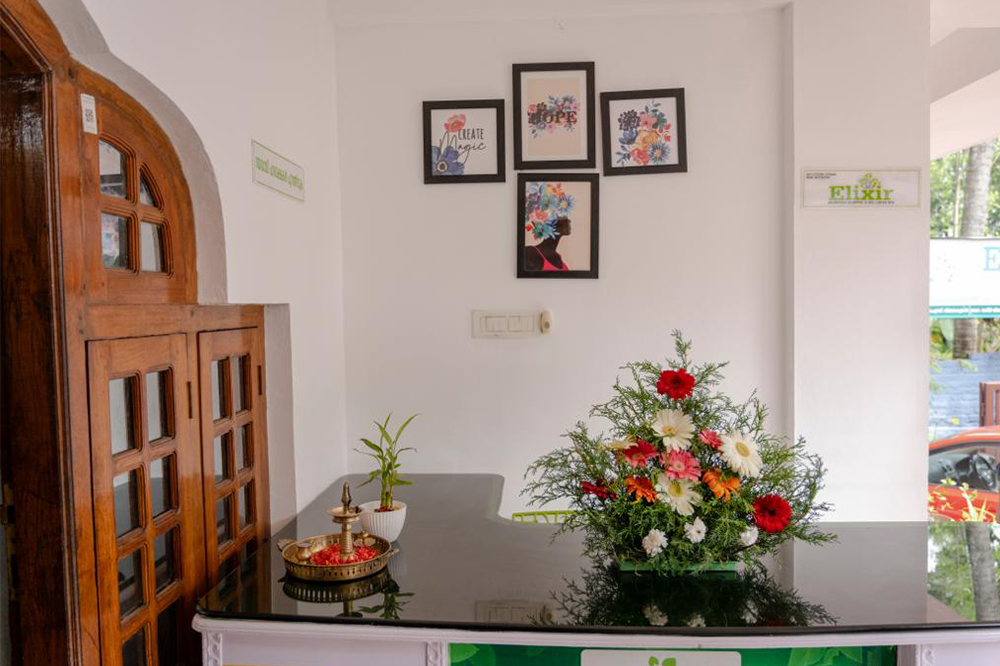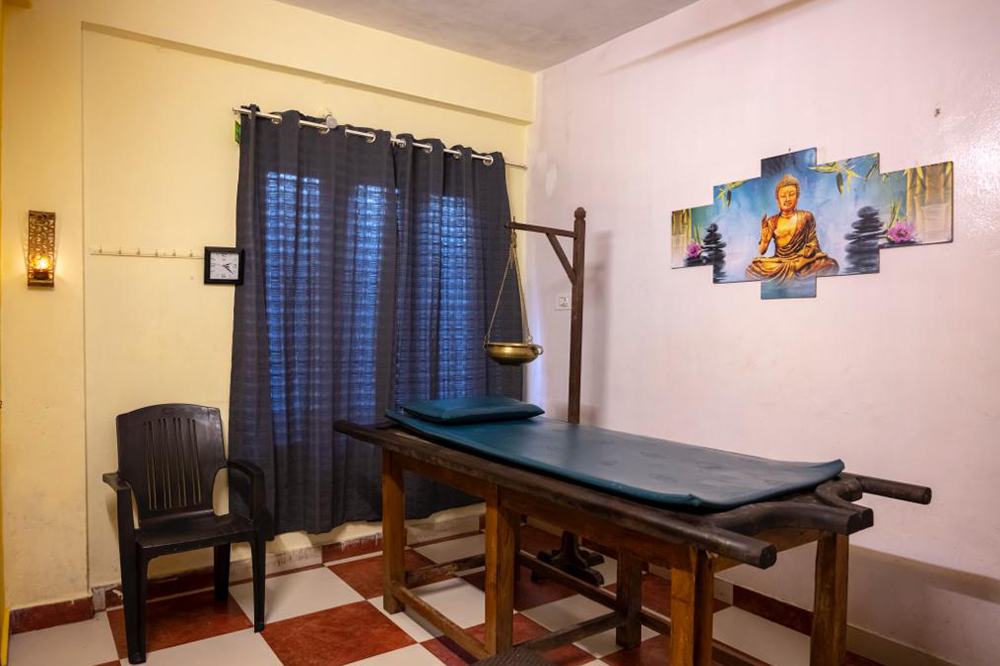Eczema, also known as atopic dermatitis, is a common skin disorder that affects millions of people worldwide. It is characterized by inflammation, itching, skin peeling, redness, and a mild burning sensation. Eczema can be a distressing condition, impacting the quality of life for those who suffer from it. While conventional treatments focus on managing symptoms, Eczema treatment in Ayurveda offers a holistic approach that aims to address the root causes of eczema and provide long-lasting relief.
Symptoms of Eczema
The symptoms of eczema can vary from person to person, but the most common signs include cracked and dry skin, persistent itchiness, the presence of a rash or swollen skin with varying colours depending on the individual's skin tone, small raised pimples (especially in individuals with darker skin), raw and itchy skin caused by scratching, and darkening of the skin around the eyes.
Causes of Eczema
Eczema is a multifactorial condition, and several factors can contribute to its development. These include:
Surroundings:
Many things in your environment can irritate your skin and trigger eczema flare-ups. Factors such as smoking, inhaling pollutants, using harsh soaps, wearing wool, and using certain skincare products that aren't suitable for your skin type can all contribute to eczema symptoms.
Family History:
If you have a family history of eczema, you are more likely to develop the condition. There is a genetic component to eczema, and individuals with a family history have a higher risk of experiencing flare-ups.
Emotional Catalysts:
Emotional well-being plays a significant role in skin health. Stress and other emotional factors can trigger or exacerbate eczema symptoms. It is not uncommon for individuals to notice a connection between their emotional state and the severity of their eczema symptoms.
Immune System Response:
Individuals with eczema have an overactive immune system that reacts to even minor allergens or irritants in the environment. The immune system interprets these triggers as harmful foreign invaders, like bacteria or viruses, leading to an inflammatory response. This inflammation manifests as eczema symptoms on the skin.
Food Allergies:
Certain food allergies can contribute to eczema flare-ups. Common allergens include peanuts, dairy products, eggs, and gluten. Identifying and avoiding trigger foods can help manage eczema symptoms.
Types of Eczema
There are several types of eczema, each with its unique characteristics. The most common types include:
Atopic Eczema:
This type of eczema is common among children, but it can affect individuals of all ages. It is characterized by itchy and dry skin that gradually develops into rashes and small raised bumps. The most commonly affected areas are behind the knees and on the chest.
Discoid Eczema:
Discoid eczema is characterized by chronic inflammation, itching, and the presence of crusty patches on the skin that sometimes ooze pus. These patches can spread throughout the body or remain confined to a particular area as small, circular patches. Discoid eczema is commonly seen on the hands, lower legs, and forearms.
Xerotic Eczema:
Xerotic eczema, also known as winter itch, is caused by excessive dryness in the skin, often brought on by cold weather. The lack of proper moisturization can cause the skin to appear patchy and rough, with scaling along the arms and legs. Besides cold weather, xerotic eczema can also be caused by factors such as zinc deficiency and the use of diuretic medications or when the body's water content is less than 20%.
Contact Dermatitis:
Contact dermatitis occurs when an allergen directly interacts with the skin or when sweat remains on the skin for a prolonged period. Individuals who wear wristwatches, jewelry pieces, fragrances, or cosmetics may develop a rash accompanied by itching, inflammation, and a burning sensation.
Venous Eczema:
Venous eczema, also known as gravitational eczema, primarily affects older individuals. It exhibits symptoms similar to other types of eczema, such as dry and flaky skin, redness, and visible veins. Venous eczema is most commonly seen in the lower legs, appearing as if pulled down by gravity.
Ayurvedic Treatment for Eczema
Ayurveda, the ancient Indian system of medicine, offers a holistic approach to treating eczema. The aim of eczema treatment in Ayurveda is to balance the doshas (vata, pitta, and kapha), purify the body, and promote overall well-being. The treatment approach includes:
Panchakarma Treatments:
Panchakarma, a set of purification therapies, is a crucial aspect of Ayurvedic treatment for eczema. These therapies help detoxify the body, remove accumulated toxins, and restore balance. Panchakarma treatments may include therapies such as Abhyanga (oil massage), Grutham sevana (ghee consumption), Virechana (therapeutic purgation), and Vamana (therapeutic vomiting), depending on the individual's condition and dosha imbalance.
Internal Medications:
Ayurvedic herbal formulations are prescribed to address the root causes of eczema, reduce inflammation, and support skin health. Some commonly used herbs for eczema treatment in Ayurveda include Bakuchi, Manjishta, Neem, and Haritaki. These herbs help purify the blood, enhance immune function, and promote healthy skin.
External Applications:
External applications play a vital role in managing eczema symptoms. Ayurvedic oils, such as coconut oil or specific medicated oils, are applied to the affected areas to moisturize the skin, reduce itching, and promote healing.
Lifestyle Modifications:
Ayurveda emphasizes the importance of a balanced lifestyle in managing eczema. It includes dietary recommendations, stress management techniques, and appropriate hygiene practices to support overall well-being and minimize triggers that can exacerbate eczema symptoms.
Dietary Recommendations:
Ayurvedic dietary guidelines for eczema focus on eating foods that are cooling, calming, and anti-inflammatory. This includes consuming fresh fruits and vegetables, whole grains, herbal teas, and avoiding processed, spicy, and allergenic foods. It is also important to stay hydrated by drinking plenty of water throughout the day.
Hydration and Skincare:
Proper hydration is essential for individuals with eczema to maintain healthy skin. Regularly applying a natural moisturizer, such as aloe vera gel, can help soothe dry and irritated skin. Avoiding harsh soaps and opting for gentle, Ayurvedic skincare products can also prevent further irritation.
Afterall, Ayurveda offers a comprehensive approach to managing eczema by addressing the underlying imbalances in the body and promoting overall health. The personalized treatment approach focuses on identifying and eliminating the root causes of eczema, reducing inflammation, and supporting the natural healing processes of the body. Consultation with an experienced Ayurvedic practitioner is essential to receive a tailored treatment plan based on individual needs and dosha imbalances.
Embracing Ayurveda's holistic principles, along with proper diet, lifestyle modifications, herbal remedies, and Ayurvedic therapies, can provide long-lasting relief from eczema and improve overall skin health. Remember, consistency and patience are key when following Ayurvedic treatments. Start your journey towards healthier skin today with the natural and time-tested wisdom of Ayurveda.
FAQs
Q1.What are the main causes of eczema?
A. Allergens or environmental factors such as cold and dry weather, dampness,house dust,pet fur ,pollen,moulds. Food allergies such as allergies to cow’s milk,peanut soy etc Other materials such as synthetic fabrics and wool.
Q2. Can eczema spread?
A. Eczema does not spread from person to person. It can spread to various parts of the body,but not from contact.
Q3. How long does eczema lasts for?
A. Eczema symptoms tend to last for a few weeks at a time. Acute eczema may resolve completely after treatment. Chronic eczema may resolve and occasionally flare up again through out your life.
Q4. Is eczema an allergy?
A. Most types of eczema are not allergies.But disease can flare up when you are around things that cause an allergic reaction .you might get itching, swelling, sneezing, running nose.
Q5. How do you prevent eczema?
A. Using a humidifier in dry or cold weather. Using mild soap or non soap cleanser for washing. Rather than rubbing skin after bathing, use air drying or gently patting the skin with a towel.


